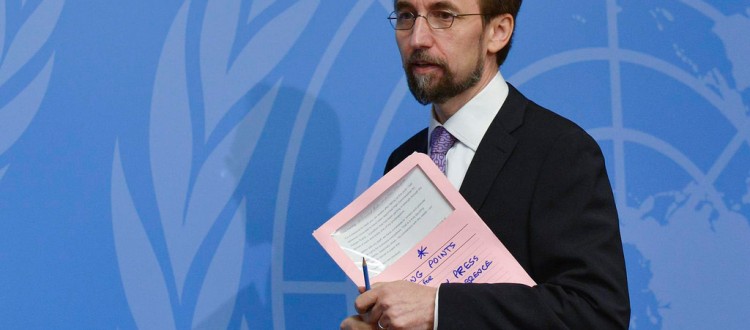Sri Lanka – a strong report, let’s make it count
The UN Office of the High Commissioner for Human Rights’ long awaited report into human rights violations in Sri Lanka 2002-2011 establishes that War Crimes and Crimes Against Humanity were likely committed by both the government, the LTTE and paramilitary groups, and that there is sufficient evidence to warrant criminal investigations against specific individuals.
| Suggested Reading | Conflict Background | GCCT |
By the Sri Lanka Campaign for Peace and Justice
- You can read a summary of the report here
- You can read the full report here
This marks the end of a long struggle by victims and survivors – many thousands of whom gave testimony to the investigation at great personal risk – for international recognition of the abuses that they have endured
Yet it is also the beginning of another, even more important chapter – one that will begin to be written in the next few weeks when members of the Human Rights Council sit down to discuss the report and propose the concrete action that must follow.
We are pleased to report that the robust findings and recommendations of the report offer a clear and credible roadmap for those next steps, both in terms of satisfying survivor demands for justice and for addressing the root causes of patterns of human rights abuses in Sri Lanka.
Among its key findings, the report:
- Establishes that War Crimes and Crimes Against Humanity were likely committed by both the government, the LTTE and paramilitary groups, and that there is sufficient evidence to warrant criminal investigations against specific individuals.
- Finds that enforced disappearance, sexual violence and acts of torture have been committed on a systematic and widespread scale by government security forces.
- Identifies a broad set of obstacles to accountability, including the absence of judicial independence, the lack of adequate witness protection systems, and the inadequacy of the domestic legal framework.
Among its key recommendations, the report proposes:
- The creation of a “hybrid special court” to address allegations of human rights violations, integrating international judges and prosecutors, mandated to try war crimes and crimes against humanity and with its own witness protection programme (recommendation 20).
- The establishment of a fully-fledged OHCHR country presence to monitor the human rights situation and ongoing monitoring by the UN Human Rights Council (recommendation 3, 39).
- The disbandment of the Presidential Commission on Missing Persons (recommendation 25).
- The introduction of vetting procedures to Sri Lankan security forces engaged in UN peacekeeping programmes (recommendation 35).
- The use of Universal Jurisdiction by third party states in order to investigate and prosecute those allegedly responsible for violations (recommendation 36).
The resonance between many of the report’s recommendations and the survivor demands laid out in our recent report is a powerful indictment of its strength. But, given their divergence from the government of Sri Lanka’s current position, as well as recent comments by the US, they also point to the very serious challenge ahead.
As we wrote last month, what is now required is a strategy for closing that gap. Given the Sri Lanka government’s lacklustre response to today’s report, it is now incumbent on the international community to take the lead on such a strategy. They must either push the Government of Sri Lanka to go further, or go further themselves.
The first step will be to ensure that the imminent resolution on Sri Lanka is as strong as it can be. That is something that will take serious courage, political capital, and willingness for change.
To throw your weight behind that call – and to urge the international community not to ignore the demands of survivors – please sign our petition today.
The Sri Lanka Campaign for Peace and Justice is a multi-ethnic, non-partisan group who campaign for a just and lasting peace in Sri Lanka, based upon accountability and respect for human rights.
The Sri Lanka Campaign for Peace and Justice is a member of the Global Coalition for Conflict Transformation, which is comprised of organizations committed to upholding and implementing the Principles of Conflict Transformation.




















Pingback : September 2015 Review - TransConflict